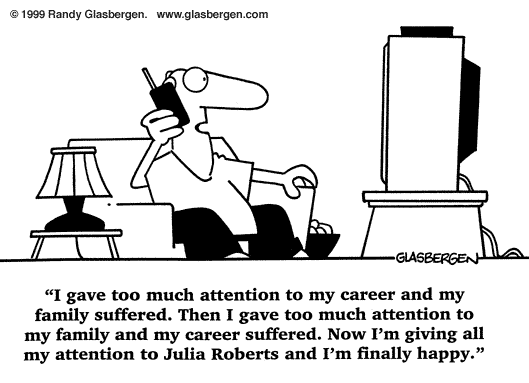

The Good Country Index

Paul Lanigan is in my circle of friends. LinkedIn says he is a ‘connection’ of my friend John who is one of my ‘connections’, which sounds so cold to me. I mentioned to a friend recently that someone on LinkedIn had invited me to be ‘friends’ and they corrected me that it’s ‘connections’ on LinkedIn. When I was middle aged and working at a fevered pace, I used to say I don’t need more friends since I couldn’t keep up with the ones I had. Now that I am getting older and noticing that there is a finish line ahead in work and in life, I realize that you really can’t have too many friends. People that you are cheering on in life – people that are there to support your success however you define it – people that help prop you up when the going gets tough – people to challenge you to be better.
Back to Paul Lanigan. Paul posted on LinkedIn a short two-minute YouTube clip of a TED Talk by Simon Anholt. Anyone who knows about my insatiable curiosity about ideas can understand that two minutes spiraled into two hours down the rabbit hole. It is no wonder I couldn’t make it at Mercer since the time I just spent is all ‘non-billable’. I am lucky I have a boss that doesn’t get bent out of shape when I vanish for a few days inside my own imagination – thanks Jason! If you want the two-minute clip you will find it here on Paul’s page – if you want the full 17 minutes of deep thinking then go to Simon’s TED Talk. If you don’t have time to watch videos or can’t because you are at work – read on.
Who is Simon Anholt? If you believe what he says about himself, “He is recognized as the world’s leading authority on national image and as the creator of the terms ‘nation brand’, ‘place brand’ and ‘competitive identity’, amongst many others.” Interestingly he doesn’t pump up his own brand with academic credentials, so it took me some time to figure out that in 1984 he received a Master of Arts in Languages, Literatures and Linguistics from Oxford University. In a nutshell, a little older and a lot smarter than me.
It looks like Simon’s life’s work is going to culminate in something called the Good Country Index. If a 17-minute YouTube video isn’t enough, they have built a website which is a dream come true for data junkies that most actuaries can be accused of being. What Simon and his team are driving at is a measurement of the contribution a country makes to the world. “What we mean by a Good Country is something much simpler: it’s a country that contributes to the greater good of humanity.” His work focuses on asking world leaders to look outward to make the world a better place rather than looking inward only at the interests of their own country.
For those of us that think living here in Canada is a pretty good deal, even if it’s cold for a third of the year, finding Canada just outside the top ten in 11th place is reassuring that we are on the right track as a country. Whether the math is ‘right’ or ‘wrong’ isn’t as important as the discussion that the index raises about what it means to be a ‘good country’ and what measures leaders can take to get their country to move higher on the list as years pass. There is a complementary Good Leader Index which is subjective rather than supported by data and which creates the narrative around the qualities that we are all searching for from leadership.
I have been thinking lately about our team at ASI, and whether we are a ‘good company’ for which to work. At ASI, except for a few days for a few people, everyone takes their vacation. There have been times in the past decade when I have wondered why some members of our team didn’t want to make greater personal sacrifices to further their careers and/or earn more money. That said, I figured it out over time. The reality is that the company that I wanted to build was one where clients would be well served by people who loved what they did but who could limit how many hours a week they were required to show up to do it. The reality of the big firms when I was starting out was that it was an all-out competition for who could work the most and once you got on the escalator to the top it was hard to voluntarily jump off – especially if you bought a home in Toronto that came with a big mortgage.
I was lucky to get off the escalator early (having studied Escalator Theory in the early 1990s with my friend and fellow actuary Paul, trying to figure out why escalators slow down when getting on and speed up when getting off – whether going up or down). I got off the career escalator so early that I couldn’t afford a home in Toronto and even Oakville seemed expensive which is why I am down here in Windsor (sadly watching it get expensive here too). Even though I am not reluctant to admit that Paula and I both worked more hours than planned to get this firm established, it was never my vision that a successful professional practice would be driven by billable hours. Rather, long-term success is providing clients with consultants, actuaries and administrators that are well trained and engaged, while providing staff with clients that appreciate what staff have to offer (it is amazing how far a ‘thank you’ from a client will go to motivate us all). As I step back and look at things, our people are doing exactly what they should be doing – a great job when they are here at the office (even if it’s virtually) and enjoying life when they aren’t here.
The global pandemic has changed life for almost all of us more than any changes that we have undertaken voluntarily or that have been forced upon us any time in our life before March of 2020. This massive upheaval has created a natural time to look at where you work, what is expected of you, the roles you play outside of work, and how you can achieve the balance that make sense for you.
One of my sons is studying philosophy and we recently had a late-night discussion around individual purpose and how small of a spec we are in the universe in which we exist. I am not sure what we resolved in the discussion, but I do know that my work is still important to me and I don’t plan to stop anytime soon. At the same time, my work isn’t my entire existence which is why over the past three or so years I have sought to find a balance that includes my life outside the office.
Maybe it’s because my calendar of life is moving through Fall (thanks Randy), maybe it’s because the pandemic has taken many around the world away from us before their time, or maybe it’s because globalization has brought the reality of a greater purpose to our existence into focus, but either way I find myself looking outward at the world wondering how we can all do better.



Comments
1